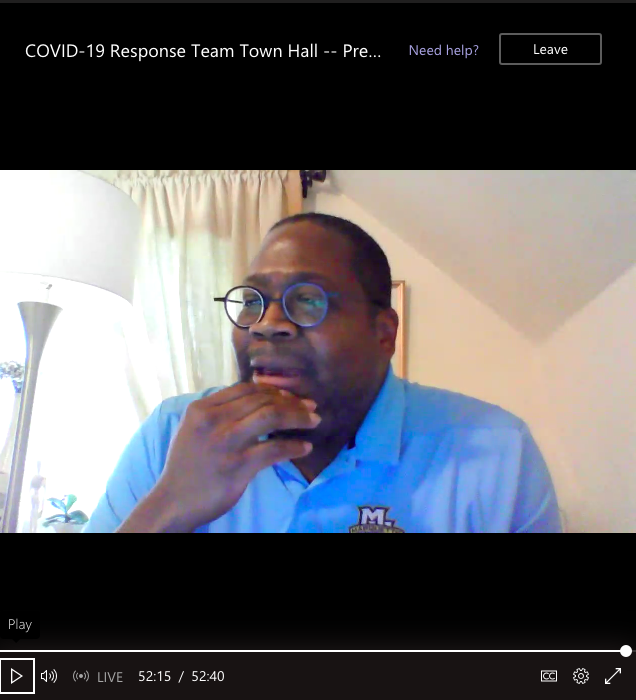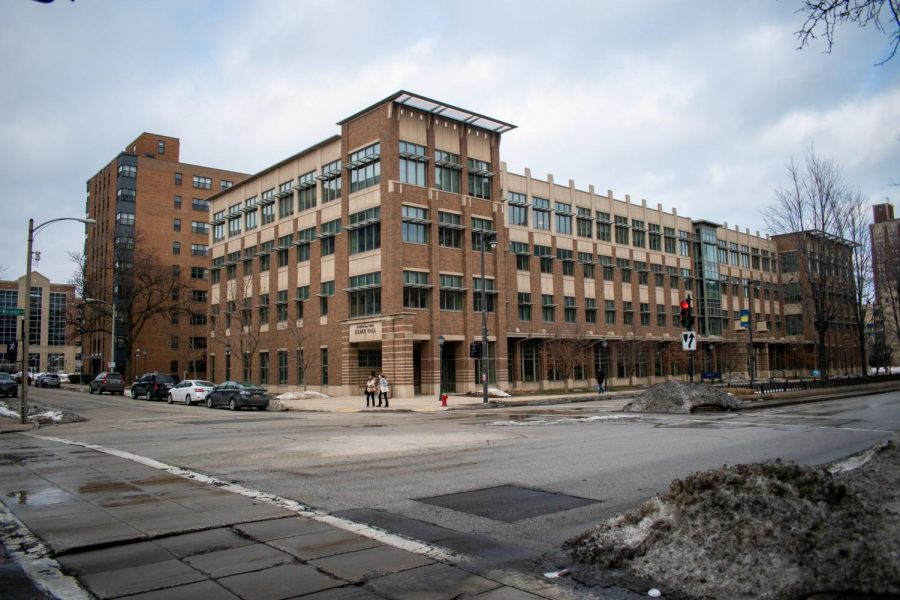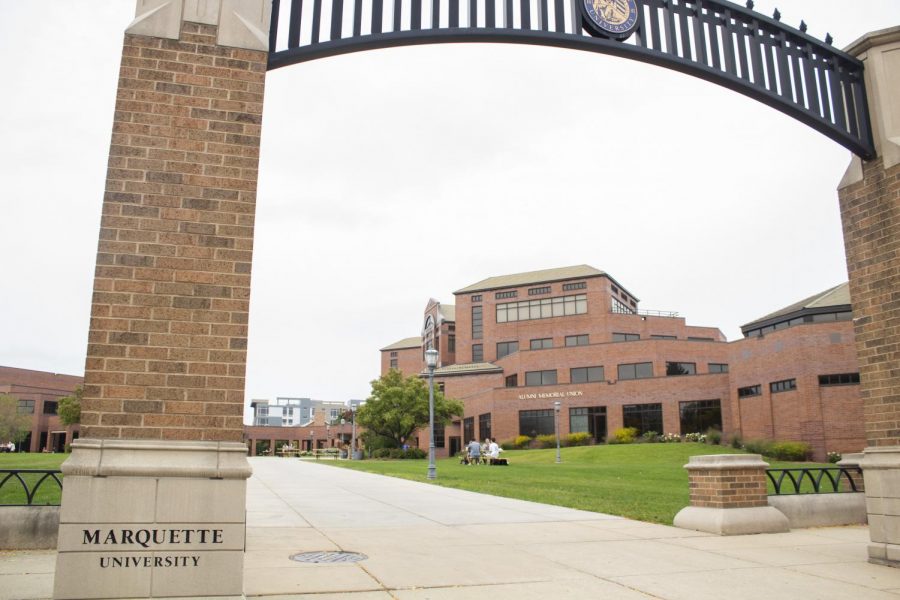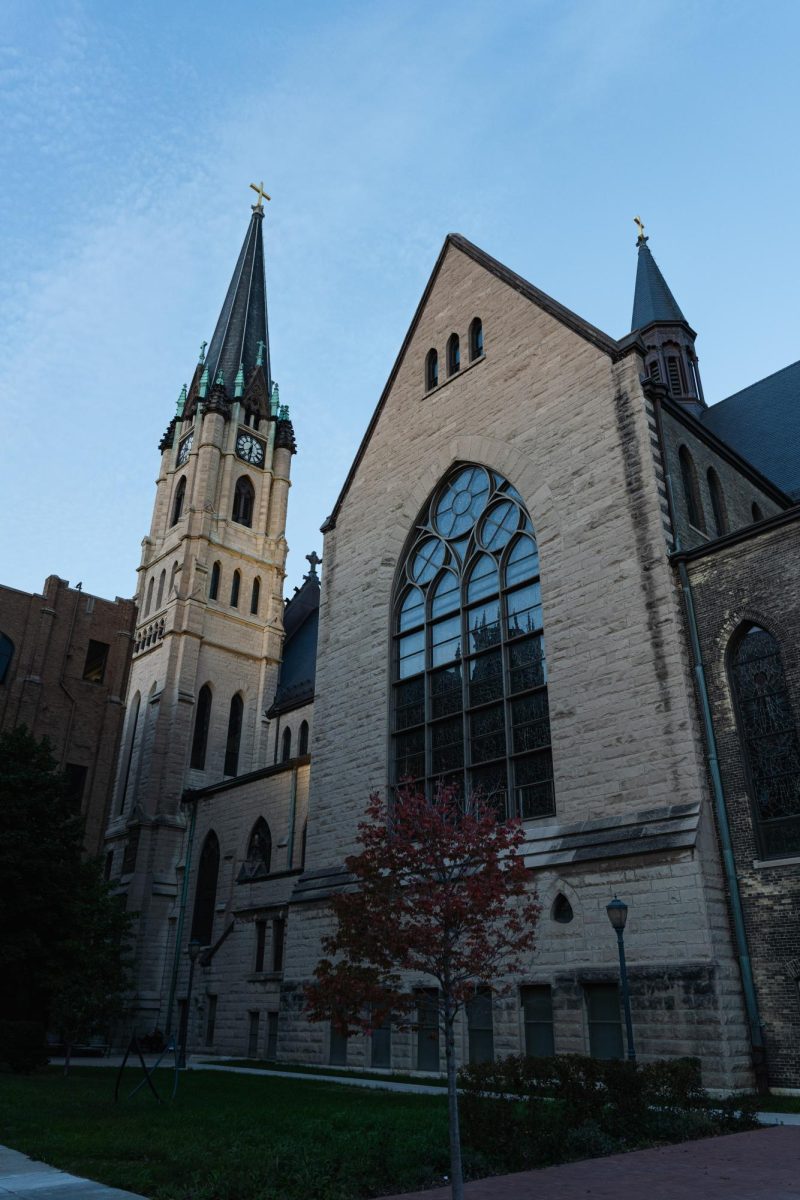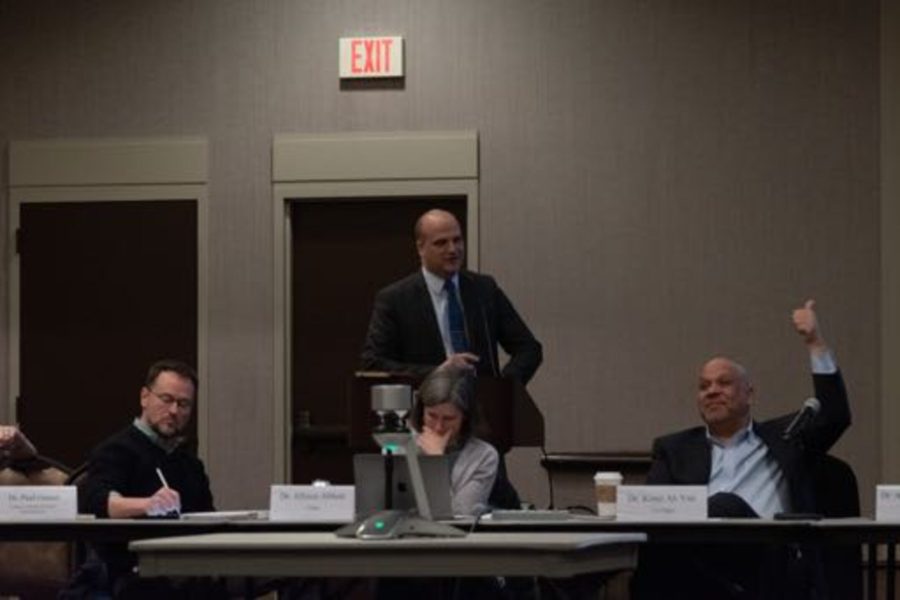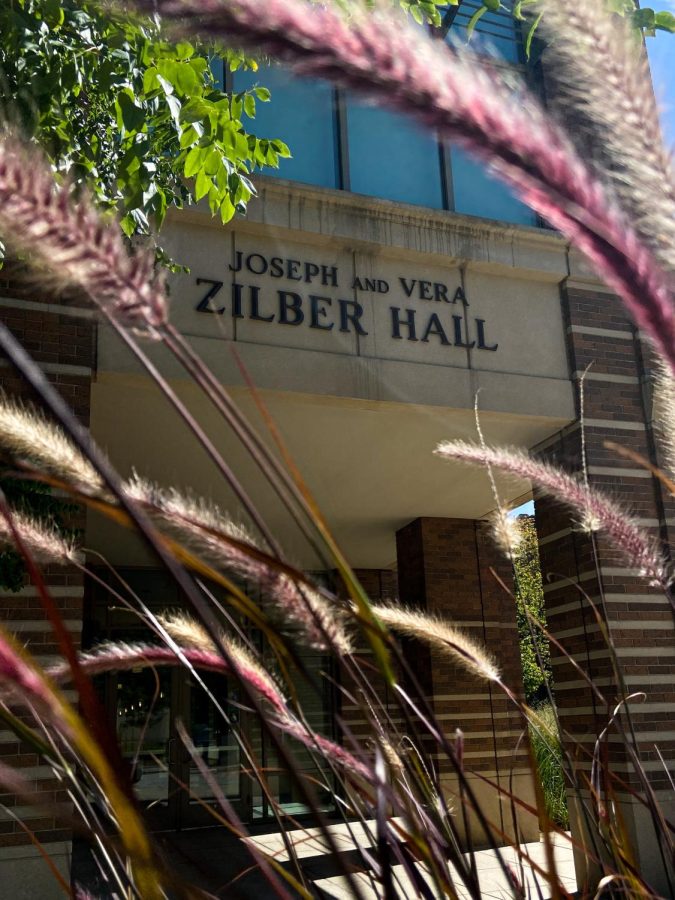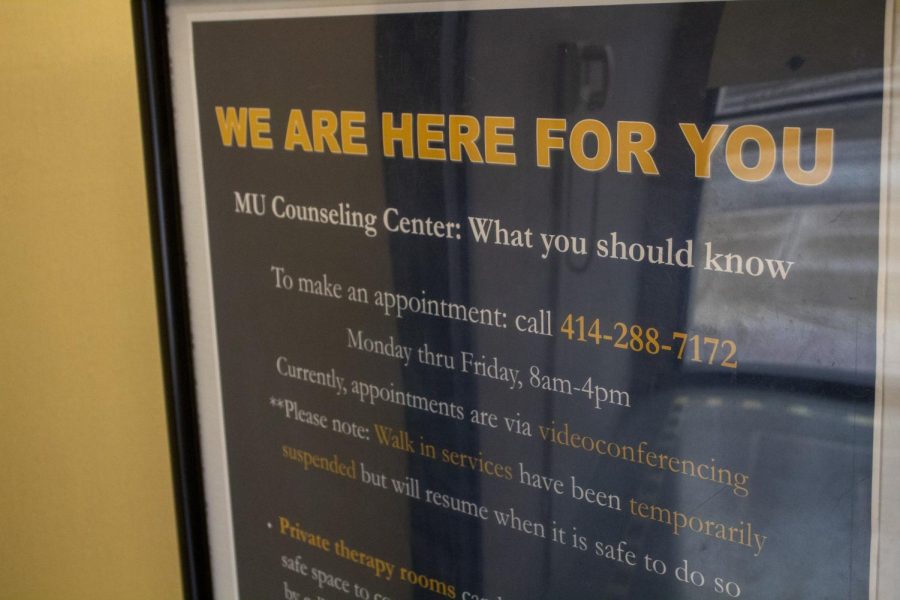Lora Strigens, vice president for planning and facilities management and co-leader of the campus Recovery Team, highlighted major updates to the university’s recovery plan, which now includes more information on planning and recovery strategies, health and safety expectations, an updated CDC symptoms list and testing and tracing procedures.
These updates were presented during the fourth virtual COVID-19 Town Hall July 14, moderated by Xavier Cole, vice president of student affairs and chair of Marquette’s COVID-19 Response Team. The town hall focused on the beginning of Step 3 in the recovery plan.
According to Marquette’s COVID-19 Response Team website, Cole leads the Steering Committee, which “meets daily to share updates, discuss COVID-19 developments and prepare campus communications.”
The Response Team has six subcommittees which cover Academics, Employee, External Contacts, Medical, Students Life/Residence Life and Recovery. Additionally, the team meets with representatives of other areas of campus such as Human Resources and IT Services.
Cole began the event by reminding attendees of the five health and safety measures that he and Keli Wollmer, executive director of the Marquette University Medical Clinic, emailed to faculty, staff and students July 9. According to Cole, the university is requiring face coverings, minimum distancing of six feet in public spaces, frequent hand washing and limitations on gatherings in compliance within Milwaukee guidelines.
Additionally, Cole said that all members of the Marquette community are asked to complete a voluntary COVID-19 disclosure form if they have been exposed to the virus, have symptoms of the disease or have been in contact with a sick individual so that the university can improve its contact tracing and notifications. Cole and Wollmer stressed that it is up to each member of the Marquette community to do their part in mitigating the spread of the virus.
University President Michael Lovell then explained the importance of forward planning and pragmatism given the rise in cases both nationally and in Milwaukee.
“The City of Milwaukee Health Department (MHD) continues to closely monitor an outbreak of respiratory illness caused by a novel (new) Coronavirus (COVID-19),” the City of Milwaukee’s coronavirus webpage said. “As of July 14, 2020 at 2:00 p.m., there are 10,297 confirmed cases of Coronavirus (COVID-19) and 244 deaths in the city of Milwaukee.”
According to the Centers for Disease Control and Prevention, the United States has had a total of 3,355,457 cases of COVID-19 and 135,235 deaths.
Strigens, vice president for planning and facilities management and co-leader of the campus Recovery Team, said the university is focusing on three core objectives as it builds and follows its recovery plan. These objectives include mitigating the spread of the virus on campus and within the community, maintaining a commitment to the university’s Jesuit mission and research efforts and minimizing financial fallbacks and effects on the Marquette community.
The university is currently on Step 3 of its recovery plan, in which limited numbers of employees are allowed back on campus, according to Strigens. Employees who wanted to return to campus had to submit request forms to return back to campus during Step 2 of the recovery plan.
Lovell said the current plan for the fall includes a hybrid procedure for reopening that will feature both in-person and online education but that the university recognizes that the plan might be modified as situations change in the fall semester.
He emphasized that the health and well-being of the Marquette community will be most important, and that the university will continue to work with health professionals to follow the most recent guidelines from health professionals, including the CDC.
Enrollment for fall 2020 is down by 226 students compared to fall 2019 enrollment, John Baworowsky, vice president for enrollment management, said in a COVID-19 Town Hall Forum June 10.
Baworowsky also said in June that Marquette would allow incoming first-years to defer their enrollment or transfer to Marquette in the spring or fall of 2021 with guaranteed admission and scholarships carried.
With university losses of $15 million this past spring due to the sudden shift to online learning because of COVID-19, Lovell said the university will face far greater losses if forced to move online this fall, including an even greater reduction in enrollment rates as students choose cheaper options or gap years instead of attending Marquette.
“We will then have to make very difficult decisions on how to cover these losses,” Lovell said. “Our plan is to reopen only if it is safe to do so.”
Lovell said that the university is preparing for several contingencies, including a sudden shift to online learning.
John Su, Vice Provost for Academic Affairs, said that though he has heard requests for a normal return to campus with changes as COVID-19 cases rise, he said the fall semester will not be normal.
“A fall semester that is successful will require us as a community to engage in risk mitigation behavior, to learn in different ways, to live and socialize differently,” Su said. “If we have that strategic mix of courses now, we maximize the chances of that face-to-face experience for the whole semester.”
Mary Janz, executive director of housing and residence life, said that room configurations have been changed so that there is a minimum of 12 feet of space between students’ heads. Marquette is asking students not to rearrange furniture and is prohibiting additional furniture such as futons to be brought in.
“We ask for your understanding and we ask for your patience,” Janz said. “We continue to work on plans regarding how to create a sense of community which is such an integral part of the resident life program.”
Janz said that inter-hall visitation and external visitors will not be allowed. Students are required to wear masks in all public spaces but may remove them if they are alone or with only their roommates in their own rooms.
“We have set aside rooms with private bathrooms for isolation and quarantine spaces,” Janz said. “These rooms will be used when someone tests positive for the virus and/or was in contact with a confirmed case.”
She said that these spaces are for students who cannot travel home to quarantine, whether because of airline restrictions, at-risk family members or other reasons.
“We continue to explore isolation and quarantine spaces for our students who are living off-campus but in the near-campus neighborhood,” Janz said.
Touchless faucets have been installed in all shared bathrooms and more bottle filling stations have been installed as all drinking fountains were removed, according to Janz.
She also said that, working closely with Sodexo, dining halls will feature reduced seating density to promote social distancing and additional seating areas to accommodate peak times. There will also be online ordering and increased take-out and grab-and-go options.
Janz stressed that there will still be dining options and that students with dietary restrictions will be able to find appropriate options.
Strigens also said that some employees will be working online in the fall in order to to reduce density on campus. She said that each department will work directly with their dean, provost and vice provost to determine which employees can work from home.
Campus buildings are currently locked and will open only for Marquette IDs if the person has permission to enter a specific building, Strigens said.
“The university is installing signage throughout academic, business and residential spaces on campus to help educate and remind faculty, staff, students and visitors on the importance of personal safety practices,” Strigens said. “This distribution is coordinated through Facilities Planning and Management.”
The university is reviewing every heating, ventilation and air-conditioning unit on campus in connection with guidelines from the CDC and the American Society of Heating, Refrigerating and Air-Conditioning Engineers to achieve the highest level of filtration possible, according to Strigens. Outside air will be added to building circulation as weather permits, and purge cycles will be run at the beginning and end of each day.
Hand sanitizer stations will be located at building entrances and in public spaces, and students will be responsible for disinfecting their spaces prior to use with provided cleaning tools, such as disinfectant spray and sanitizing wipes, Strigens said.
Strigens also said that the custodial staff will be focused on cleaning and disinfection.
The increase in COVID-19 cases has particularly affected the 18-24 age group, which makes up the majority of Marquette’s on-campus community as most students fall within this age range, Wollmer said. She is working closely with the Milwaukee Health Department to ensure Marquette is meeting city requirements.
The Milwaukee Common Council approved an ordinance July 13 requiring masks to be worn in public spaces, and Wollmer said the university will also be requiring cloth face masks at minimum. She also said that the university is hoping to provide students with masks, thermometers and hand sanitizer as part of a welcome package at the start of the fall semester.
Wollmer stressed that social gatherings, including off-campus parties, must meet health guidelines with a maximum of 10 people. Additionally, she said that the university will be strengthening its campaign to encourage faculty, staff and students to get vaccinated for the flu.
Marquette hopes to have on-campus testing with next-day results available in the fall for faculty, staff and students, Wollmer said.
She also said that Marquette’s COVID-19 voluntary disclosure form will help with contact tracing. The university is also currently developing its own COVID-19 dashboard that will have daily counts for infected people.
“I want you to know that I truly understand that we are asking students to make some big sacrifices for the coming year,” Janz said. “We do so with your health and the health and safety of our students and staff in mind.”
This story is developing.
This story was written by Shir Bloch. She can be reached at [email protected].

